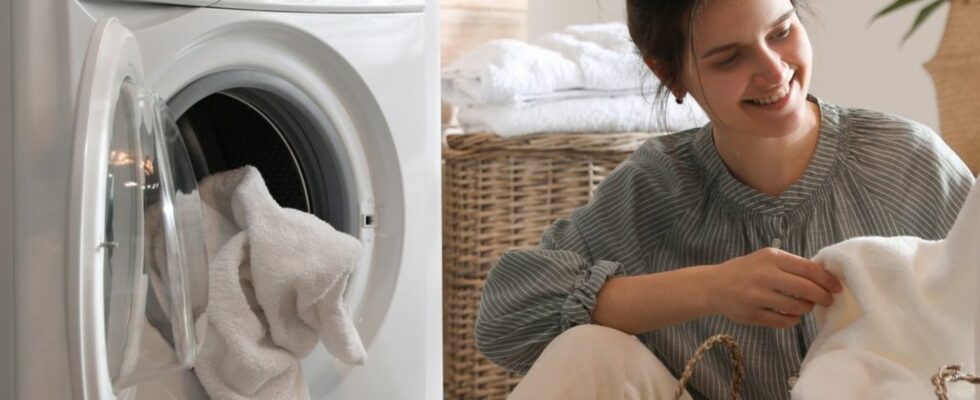Tips for the washing machine
Wash laundry in an environmentally friendly and efficient way
Washing machines are real energy guzzlers.
© New Africa/Shutterstock.com
With every wash cycle, chemicals and plastic flow into nature. Tips for more environmentally friendly laundry.
With every wash cycle, chemicals from detergents and microplastics from clothing are released into nature. Additionally comes with Washing machines consume a lot of electricity and water. But skipping laundry is not an option either. However, making it more environmentally friendly is possible: these tips can help.
Save electricity and water
In modern washing machines, water consumption is an average of 49 liters per wash cycle; with two wash loads per week, that’s more than 5000 liters per year. And the power consumption is also quite high. You can save money by washing at lower temperatures – because heating the water requires the most energy in the entire washing process.
By making full use of the washing machine’s capacity, you can also save a lot of electricity and water. A rule of thumb: If you can still fit a hand between the laundry and the wall of the drum, the drum is being used well.
Most modern washing machines have eco cycles. These save a lot of energy: although the washing machine takes longer, the laundry comes out just as clean. Three hours at 30 degrees has a similar washing performance as one hour at 60 degrees, but with half the energy.
Not all detergents are created equal
Many conventional detergents contain microplastics that flow directly from the washing machine into the environment and take a long time to break down. Surfactants, which can be found in many liquid detergents, have had to be biodegradable in the EU since 2005, but they still pose a burden on the environment. Detergents in powder form contain significantly fewer surfactants and do not require any preservatives, which is why they are more environmentally friendly than liquid detergents.
Fragrances contained in detergents are also problematic. These have no cleaning effect and are difficult to break down – they end up directly in the water. The same applies to fabric softeners: They are usually only there to make laundry softer, but their ingredients are toxic to the environment. There are already some fabric softeners on the market that are more environmentally friendly. A cheaper alternative is conventional household vinegar. The Nature Conservation Association (NABU) recommends Products with the “Blue Angel” label or the EU Ecolabel.
